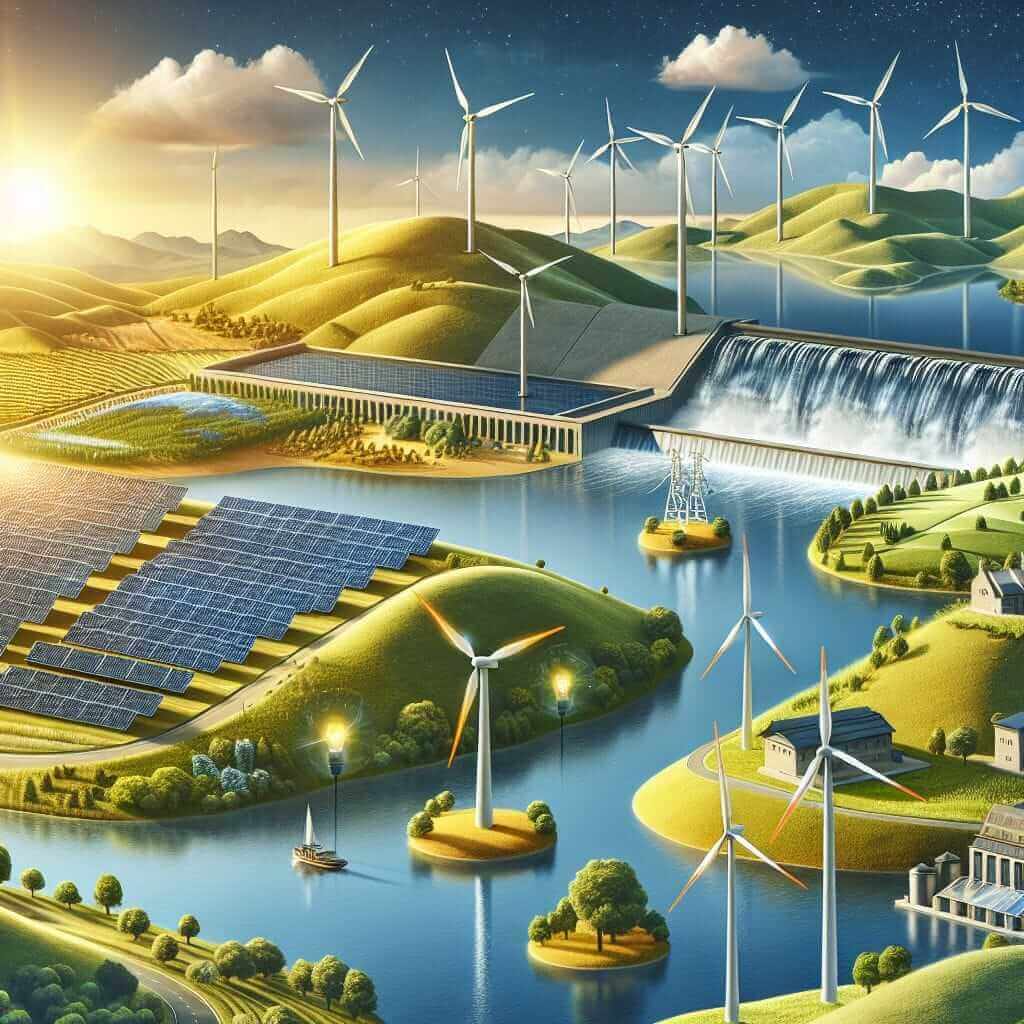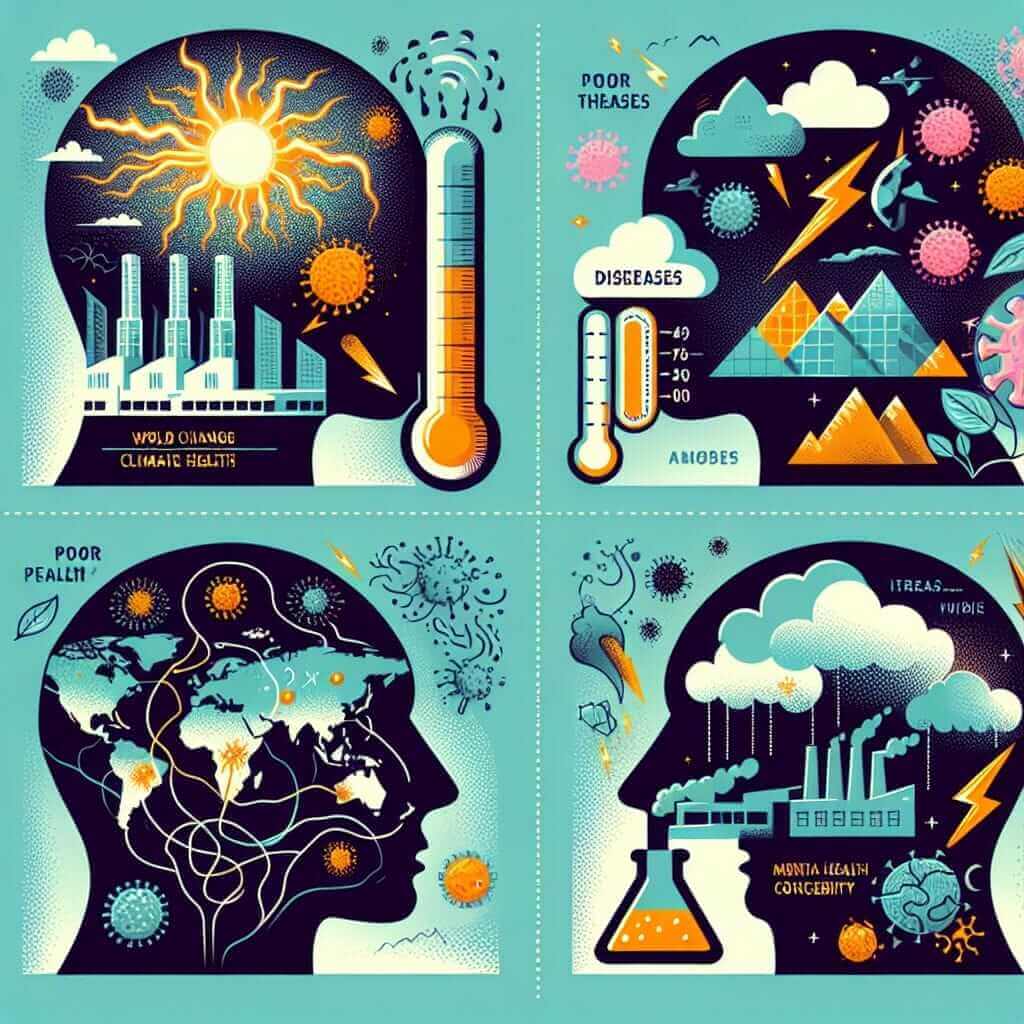The IELTS Reading section evaluates your ability to understand and process written English. It includes a variety of question types such as multiple choice, true/false/not given, and matching headings. One popular topic that has appeared in previous IELTS exams is renewable energy and its impact on rural economies.
Renewable energy is a timeless subject that intersects various fields, including economics, environmental science, and social studies. Given its relevance, this topic frequently appears in the IELTS Reading exams. By grasping how renewable energy affects rural economies, you can better prepare for potential future questions in the exam.
Main Content
Reading Exercise: Easy Text
Passage: Renewable Energy and Rural Transformation
Rural areas around the world are experiencing significant economic transformation due to the advent of renewable energy. Sources such as wind, solar, and hydropower are offering new opportunities for economic growth and sustainability. Unlike traditional energy sources, renewable energy provides a steady flow of revenue for rural communities, creating jobs and reducing energy costs.
One of the most profound impacts of renewable energy is on agricultural productivity. The reliability of renewable energy ensures that modern farming equipment can run efficiently, thereby increasing yields. Additionally, renewable energy projects help in diversifying income streams for rural households, making them less dependent on agriculture alone.
Moreover, renewable energy projects foster community collaboration. Local governments and villages come together to manage and benefit from these projects. This collaboration often results in improved local infrastructure, such as roads and schools, further enhancing the community’s quality of life.
 Renewable Energy Sources
Renewable Energy Sources
However, the implementation of renewable energy projects is not without challenges. The initial investment can be high, and there is often resistance from communities unfamiliar with new technologies. Fortunately, the long-term benefits, including environmental sustainability and economic resilience, significantly outweigh the initial hurdles.
Questions
-
Multiple Choice:
What is one benefit of renewable energy mentioned in the passage?
A) Decreased collaboration in communities
B) Increased dependency on agriculture
C) Creation of new job opportunities
D) Higher initial energy costs -
True/False/Not Given:
The passage states that renewable energy reduces the cost of energy in rural areas. -
Matching Headings:
Match the correct heading to each paragraph.- Paragraph 1: The Advent of Renewable Energy
- Paragraph 2: Enhanced Agricultural Productivity
- Paragraph 3: Community Collaboration and Infrastructure
- Paragraph 4: Challenges and Long-term Benefits
-
Summary Completion:
Complete the summary using words from the passage.
Renewable energy is transforming rural economies by providing (1) for agricultural productivity, diversifying (2), promoting community (3), and improving local (4).
Answer Key and Explanations
-
Multiple Choice:
- Answer: C) Creation of new job opportunities
- Explanation: The passage states that renewable energy creates jobs in rural communities, which is one of the benefits.
-
True/False/Not Given:
- Answer: True
- Explanation: The passage mentions that renewable energy reduces energy costs in rural areas.
-
Matching Headings:
- Answer:
- Paragraph 1: The Advent of Renewable Energy
- Paragraph 2: Enhanced Agricultural Productivity
- Paragraph 3: Community Collaboration and Infrastructure
- Paragraph 4: Challenges and Long-term Benefits
- Explanation: Each paragraph focuses on a specific aspect of renewable energy’s impact, which aligns with the given headings.
- Answer:
-
Summary Completion:
- Answers:
- (1) opportunities
- (2) income streams
- (3) collaboration
- (4) infrastructure
- Explanation: The summary captures the essence of the passage by highlighting how renewable energy provides opportunities, diversifies income, promotes collaboration, and improves infrastructure.
- Answers:
Common Errors in Reading Tests
- Misunderstanding the Passage: Students often misinterpret key points from the passage. Pay attention to the context and the main ideas.
- Ignoring Synonyms: IELTS often uses synonyms in questions and answers. Be aware of different ways to express the same idea.
- Skipping Difficult Sections: Don’t skip parts that seem challenging; you might miss crucial information. Practice reading dense and technical material.
Vocabulary
-
Advent (n): /ˈædvənt/:
- Definition: The arrival of a notable person, thing, or event.
- Example: The advent of renewable energy has brought significant changes to rural economies.
-
Diversify (v): /daɪˈvɜrsɪˌfaɪ/:
- Definition: To make or become more diverse or varied.
- Example: Renewable energy projects help diversify income streams for rural communities.
-
Collaboration (n): /kəˌlæbəˈreɪʃən/:
- Definition: The action of working with someone to produce something.
- Example: Renewable energy projects foster community collaboration and improve infrastructure.
Grammar Tips
-
Relative Clauses:
- Example: Renewable energy, which is environmentally friendly, offers new opportunities.
- Usage: Relative clauses can add essential or additional information.
-
Passive Voice:
- Example: Jobs are created by renewable energy projects.
- Usage: Passive voice can emphasize the action rather than the subject.
Conclusion
To achieve a high score in the IELTS Reading section, practice reading comprehensively and answering various question types accurately. Work on understanding the context, identifying synonyms, and improving your grammar and vocabulary. By engaging with relevant topics such as renewable energy and its impact on rural economies, you can enhance your preparedness for similar themes in the actual exam.


